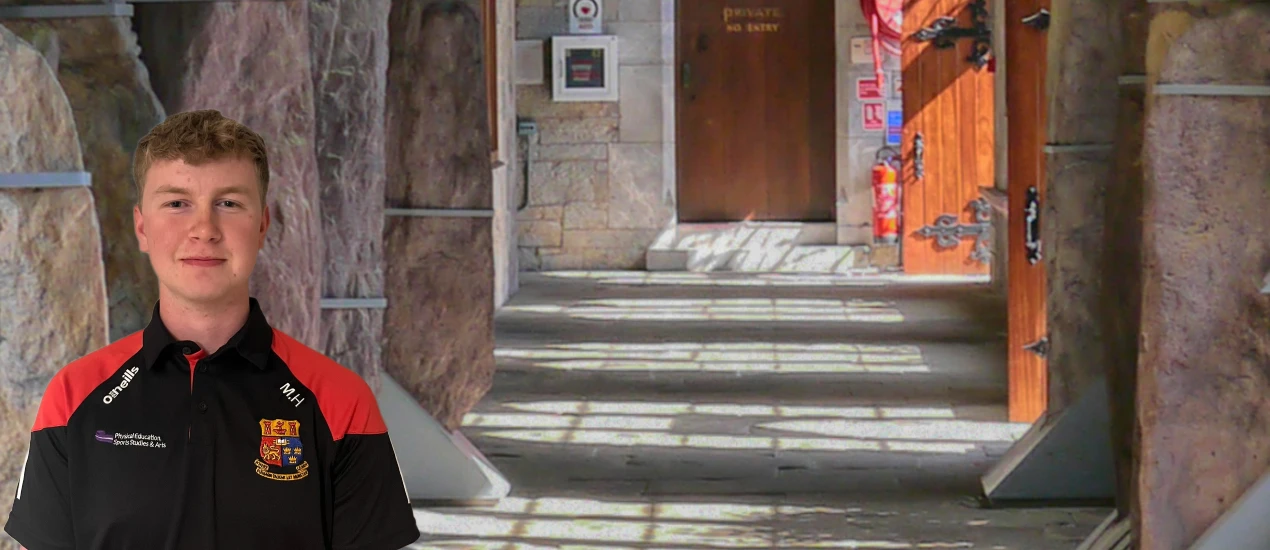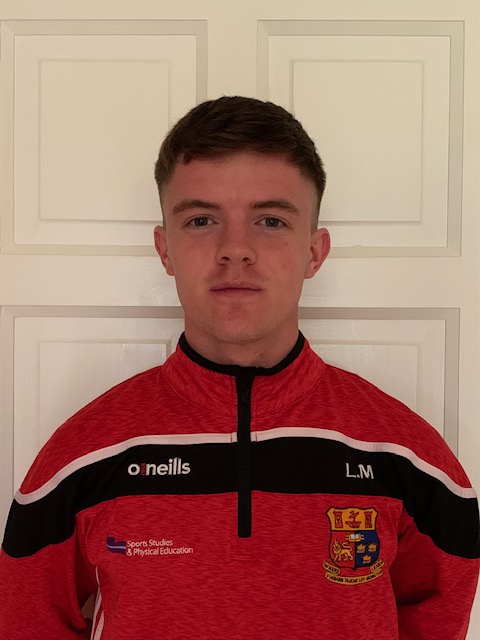| Code | CK125 |
|---|---|
| Duration | 4 Years |
| Teaching Mode | Full-time |
| Qualifications | BEd (Hons) |
| NFQ Level | Level 8 |
| Fees | See Fees and Costs for full details. |
| CAO Points | 2025: 521 |
| CAO Points Range | 2025: 521-613 |
Course Outline
Our Physical Education, Sports Studies and Arts degree is a dynamic course that aims to produce creative educators in physical education, sport and physical activity settings. As well as qualifying to teach physical education, students will also graduate in a chosen specialist arts subject from one of the following: English, Gaeilge/Irish, Mathematics, French, or History.
Graduates from this programme display independent, innovative thinking, and are agents of change in the areas of physical education, sport, and physical activity settings. Our staff are experts and research-informed practitioners in their discipline.
Teaching, coaching and community placements are available throughout the degree, and the programmes works in partnership with schools, clubs, and the community, allowing students to immerse themselves in teaching and coaching from the beginning. Please note that while we endeavour to place students in schools within Cork City and County, this is not guaranteed and will depend on your selected teaching subjects, the number of schools in which they are taught and the capacity within individual schools.
The Physical Education, Sports Studies and Arts degree also operate a comprehensive well-being mentoring programme involving buddy mentoring, tutor mentoring, and teacher/coach mentors.
Modules
Year 1
- ED1308 Sport Psychology: Fundamentals & Application
- ED1309 Motor Development and Learning for Skill Competence
- ED1310 Introduction to Exercise Physiology, Diet, and Nutrition
- ED1314 Curriculum-Based Physical Activities 1
- ED1323 Curriculum-Based Physical Activities 2
- ED1324 Pedagogical Foundations
- ED1325 Curriculum and Pedagogical Coherence in Junior Cycles
- AN1063 Anatomy of Exercise
- DH1001 Digital Humanities: Theories & Concepts 1
Elective Modules
One Arts subject (15 credits) from the following: English, French, (a student will not normally be allowed to select French unless they have attained a pass standard in French in the Leaving Certificate examination [or equivalent]), Gaeilge/ Irish, History and Mathematics.
Please go to the individual subject pages for a list of first-year modules to find out more details.
Year 2
- ED2322 Curriculum and Pedagogical Coherence
- ED2324 Arts Subject Pedagogy 1
- ED2325 Placement 1
- ED2405 Curriculum-Based Physical Activities 3
- ED2406 Curriculum-Based Physical Activities 4
Elective Modules
Arts subject continued from Year 1
Practical modules include dance, gymnastics, G.A.A., and rugby. Students will also complete their second placement in a school setting where they will observe, plan and teach physical education, under the guidance of a mentor (co-operating teacher).
Year 3
- ED3304 Curriculum-Based Physical Activities 5
- ED3307 Coaching Science 1
- ED3308 Health and Wellbeing
- ED3327 Creativity and Innovation in Education
- ED3328 Community-Based Physical Activity
- ED3329 Placement 2
Elective Modules
Students will complete their third placement in a school setting where they will observe, plan and teach their chosen Arts subject, under the guidance of a mentor (co-operating teacher).
Year 4
- ED4104 Conceptual Foundations in the Philosophy and History of Education
- ED4105 Conceptual Foundations in the Psychology and Sociology of Education
- ED4106 Conceptual Foundations in Curriculum and Assessment
- ED4107 Conceptual Foundations in Inclusive Education
- ED4326 Professional Relationships and Development in Education
- ED4315 Final Year Research Project
- ED4320 Placement 4
Elective Modules
- The Teaching of Irish
- The Teaching of English
- Second Language Education - French
- The Teaching of History
- The Teaching of Mathematics
A large proportion of Year 4 will comprise school placement for the student, specifically teaching physical education and the selected specialist Arts subject for an entire school year. Students will then return to university for lectures, practicals and workshops in the afternoons.
Academic Programme Catalogue
See the Academic Programme Catalogue for the complete and up-to-date content for this course. Note that the modules for all courses are subject to change from year-to-year. For complete descriptions of individual modules, see the Book of Modules.
Course Practicalities
As part of the degree’s semesterisation format, some written exams will take place before Christmas (semester one), and in May (semester two). Not all modules will have formal written summative-type examinations. Many modules use continuous and formative types of assessment, including in-class tests, oral presentations, end-of-semester assessments, digital portfolios, online learning tasks, reflections and micro-teaching/micro-coaching etc. You will develop invaluable transferable skills of independent, critical thinking by completing these wide-ranging assessments.
Who teaches this programme?
- Dr Fiona Chambers, Senior Lecturer
- Dr Trish Fitzpatrick, School Placement Coordinator and Lecturer
- Dr Joao Mota, Curriculum-based Physical Activities Coordinator and Lecturer
- Dr Diarmuid Lester, Lecturer
- Dr Wesley O Brien, Programme Director and Senior Lecturer
- Mr Arthur Twomey, Lecturer
- Dr Conor Philpott, Lecturer
- Ms Holly Peters, School Placement Coordinator and Lecturer
Why Choose This Course
Most recent 5-year trend data has indicated that 88% of our graduates successfully gain employment in the teaching and coaching sectors. To date, our graduates have found employment in Ireland, the UK, the US, Korea, Canada, the Middle East, Australia, and New Zealand.
The Physical Education, Sports Studies and Arts degree also provides a pathway for graduates who wish to study at postgraduate level in sports, physical activity, physical education, well-being, physical literacy, or general education.
Placement or Study Abroad Information
- Year 2: School Placement teaching Physical Education
- Year 3: School Placement teaching chosen Arts subject
- Year 4: School Placement teaching PE and Arts subject (entire school year)
Note for Irish and French students: the Teaching Council requires that students must have verifiable residential experience (in France or Gaeltacht). In order to fulfill this requirement, students may opt to register for an additional 5-credit module, ED2319, which is available to students taking this programme. The module is taken in addition to the prescribed programme requirements. Work towards this module can be undertaken in part in Semester 3 of Years 1, 2 or 3 but must be completed in full in time for examination at the Summer Examination Board in the Fourth Year of the programme. Students who wish to take this module will register for it in Year 4.
Alternatively, students who choose not to register for ED2319 will be expected to provide the Teaching Council with proof of their residency (such as a letter from their landlord/employer) upon application to register as a Newly Qualified teacher.
Skills and Careers Information
Our graduates gain a range of transferable skills in planning, implementing and assessing learning across the lifespan – whether in schools, clubs or communities – specifically in the areas of sport, physical activity and physical education.
The course, through its school-university partnership, also provides career advice and preparation practice for interviews for all our students. Graduates are very well placed to begin a postgraduate course of study through our School of Education M.Ed, or cohort PhD routes also.
Requirements
Leaving Certificate Entry Requirements
At least six subjects must be presented. Minimum grade H5 in two subjects and minimum grade O6/H7 in four other subjects. English and Irish are requirements for all programmes unless the applicant is exempt from Irish.
Applicants will need to meet the following minimum entry requirements:
| English | Irish | Other Language |
|---|---|---|
| O6/H7 | O6/H7 | O6/H7 |
EU/EFTA/UK Qualifications
EU/EFTA/UK applicants presenting an equivalent school-leaving qualification should review the EU/EFTA/UK Applicants page for information on equivalent grades and how to prove their level of English.
Mature Students
To compete through the mature entry route, applicants must be 23 years of age on or before 1 January of the application year and apply online via the CAO by 1 February. The application should include a statement of interest, and applicants may also be called for interview.
Further information on applying as a mature student is available on the Mature Applicants and Mature Student Entry support pages.
QQI FET Entry
Applicants who meet the required level of distinctions in required subjects can apply for entry to this course using specific QQI FET qualifications. Please review the Programme Requirements on our Information for QQI FET Applicants page for information on related QQI courses, and visit Access UCC’s QQI/FET Entry section for further support.
Fitness to Practise
This programme is subject to UCC's Fitness to Practise Policy.
Student Garda Vetting
All students on this programme will come into contact with the public and assume positions of trust through educational and training opportunities. To ensure the protection of the public, and to justify public trust and confidence, UCC is committed to ensuring that only suitable candidates are allowed to undertake this programme.
Vetting is carried out by the Admissions Office in UCC under the National Vetting Bureau (Children and Vulnerable Persons) Acts 2012 to 2016 (the Acts) once a student has accepted their place on the programme. This involves a police check to establish whether the individual being vetted has had criminal convictions in the past or whether any criminal proceedings are pending. The Garda Siochána provide this information for students who have resided in Ireland for a period of six months or more (including permanent residence).
All students who have resided outside Ireland for a period of six months or more must furnish a Police Clearance Certificate from their country or countries of residence. This certificate should state that the student has had no convictions recorded against them while residing there.
Further information can be found on our Student Garda Vetting page.
Non-EU Applicants
Non-EU applicants are expected to have educational qualifications of a standard equivalent to the Irish Leaving Certificate. In addition, where such applicants are non-native speakers of the English language they must satisfy the university of their competency in the English language.
To verify if you meet the minimum academic and language requirements visit our qualification comparison page and refer to our International Office page for more information.
Fees and Costs
- Whether you are an EU or Non-EU student will affect the course fees applicable to you. See more information on EU Fees, Non-EU Fees, or Free Fees Status.
- The State will pay the tuition fees for EU students who are eligible under the Free Fees Scheme. The annual student contribution and capitation fees are payable by the student.
- See the Fee Schedule to find out the course fee.
- Check out scholarships that may be available to you.
- Explore our Nurturing Bright Futures free online course (Module 5) to learn about managing your money as a student and budgeting for university life.
Additional costs may include approximately €150 for SSPE sports clothing and €400 for the Assistant Swim Teachers Course. Other optional opportunities during the degree may include coaching qualifications, workshops, and field trips, and these may incur additional costs also.
How To Apply
Irish and European (EU/EFTA/UK) Applicants
Apply via the CAO. See the CAO Handbook for useful information on applying through the CAO.
Mature Applicants
Apply via the CAO by 1 February. To apply for a place as a mature student, you must be 23 years of age on or before 1 January of the year of entry.
QQI/FET Applicants
Apply via the CAO. See our QQI/FET Applicants page for information on the Quality and Qualifications Ireland (QQI) Further Education and Training (FET) application process and whether there are routes available to this course.
Non-EU Applicants
If you are from outside the EU/EFTA/UK, apply online via the UCC Apply portal. See our International Office page for more information.


